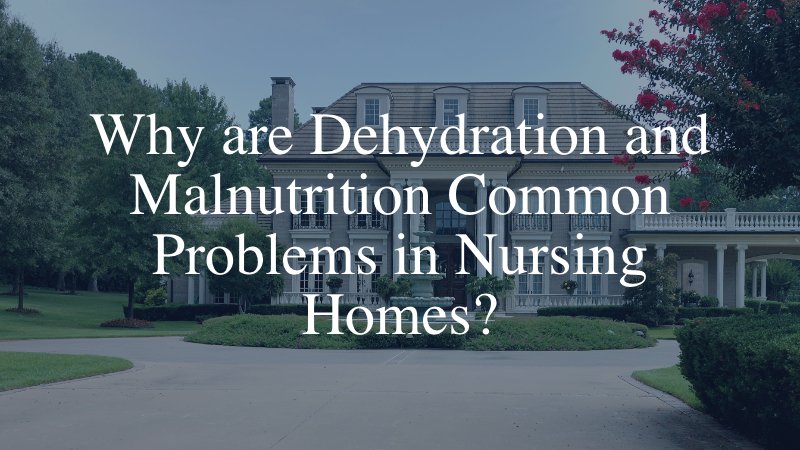Nursing Home Dehydration and Malnutrition
Nursing homes promise compassion, care, and concern for human dignity in their glossy brochures. Sadly, elderly residents do not always receive the care that they need. Some elderly nursing home residents suffer from a lack of the most basic necessities of life—proper fluid and nutritional intake.
When caregivers fail to ensure that residents are getting proper hydration and nutrition, the result may be a decline in the elderly resident’s health, cognitive ability, and quality of life. Sometimes nursing home residents die due to unaddressed dehydration and malnutrition. This is egregious negligence on the part of the nursing home and a form of abuse.
How Common is Dehydration and Malnutrition in Nursing Homes?
According to Nursing Home abuse studies, about one-third of nursing home residents suffer from dehydration and malnourishment. Alarmingly, in some nursing homes, as many as 85% of residents suffer from dehydration and malnutrition. Around 50% of nursing home residents are underweight.
The elderly face an increased risk of dehydration due to decreased kidney function, lower muscle mass, and a decreased ability to communicate thirst to caregivers. Because of these factors, senior citizens should increase their daily fluid intake. Nursing home caregivers have a responsibility to frequently coax residents to drink water and other beverages and promptly respond to requests for fluids. Unfortunately, conditions in many nursing homes are not favorable for ensuring proper hydration and nutrition for elderly residents.
Elderly residents often suffer from cognitive decline, low mobility, and decreased recognition of hunger and thirst cues—a dangerous combination in nursing homes. Nursing homes are frequently understaffed due to budget constraints, frequent staff turnover, and inadequate hiring policies. Staff-to-resident ratios typically range between 1/9 to 1/15 depending on the time of day. Because of understaffing, there are slow response times to requests for beverages and limited caregiver availability at mealtimes to ensure that residents consume adequate amounts of the meals and beverages provided to them.
Potential Consequences of Dehydration and Malnutrition in the Elderly
Suffering from chronic dehydration and malnutrition causes a significant decline in the quality of life in the elderly and may lead to serious illnesses and death. Common health conditions resulting from this type of neglect include the following:
- Frequent infections, including UTIs, respiratory infections, and infected bedsores due to weakened immune system
- Reduced mobility
- Loss of balance and coordination
- Low blood pressure
- Confusion
- Muscle atrophy
- Falls and fall-related head injuries and fractures
- Headaches
- Mood and personality changes
Infections are one of the greatest concerns in elderly nursing home residents, frequently spreading between patients and sometimes leading to sepsis and death.
Signs of Dehydration in Elderly Nursing Home Residents
The elderly may be unable to effectively communicate their symptoms and experiences to visiting family members. It’s important to recognize signs of malnutrition and dehydration, including the following:
- Dramatic weight loss
- Dry skin and lips
- Sunken facial features
- Lips that appear pulled back from the teeth
- Frequently feeling cold
- Swollen or bleeding gums and tooth problems
- Bloated abdomen
- Confusion and personality changes
Some elderly victims of nursing home abuse or neglect do not inform their loved ones due to feelings of shame or the fear of reprisal from caregivers.
Why You Need an Attorney For a Nursing Home Dehydration and Malnutrition Case
Nursing homes in the United States have a legal obligation to provide adequate care to their elderly residents with respect for their human dignity. Allowing a resident to suffer from a lack of basic care is neglect—a form of nursing home abuse with potentially deadly consequences. When nursing home administrators, staff, and caregivers breach their duty of care, they are liable for the victim’s damages, including medical costs and compensation for pain and suffering. Family members of loved ones who died due to nursing home abuse may file a wrongful death claim for damages.
Call Dan Davis Law for a free consultation with a compassionate Oklahoma City nursing home neglect attorney who is ready to take on your claim and become a voice for justice for your elderly loved one.
